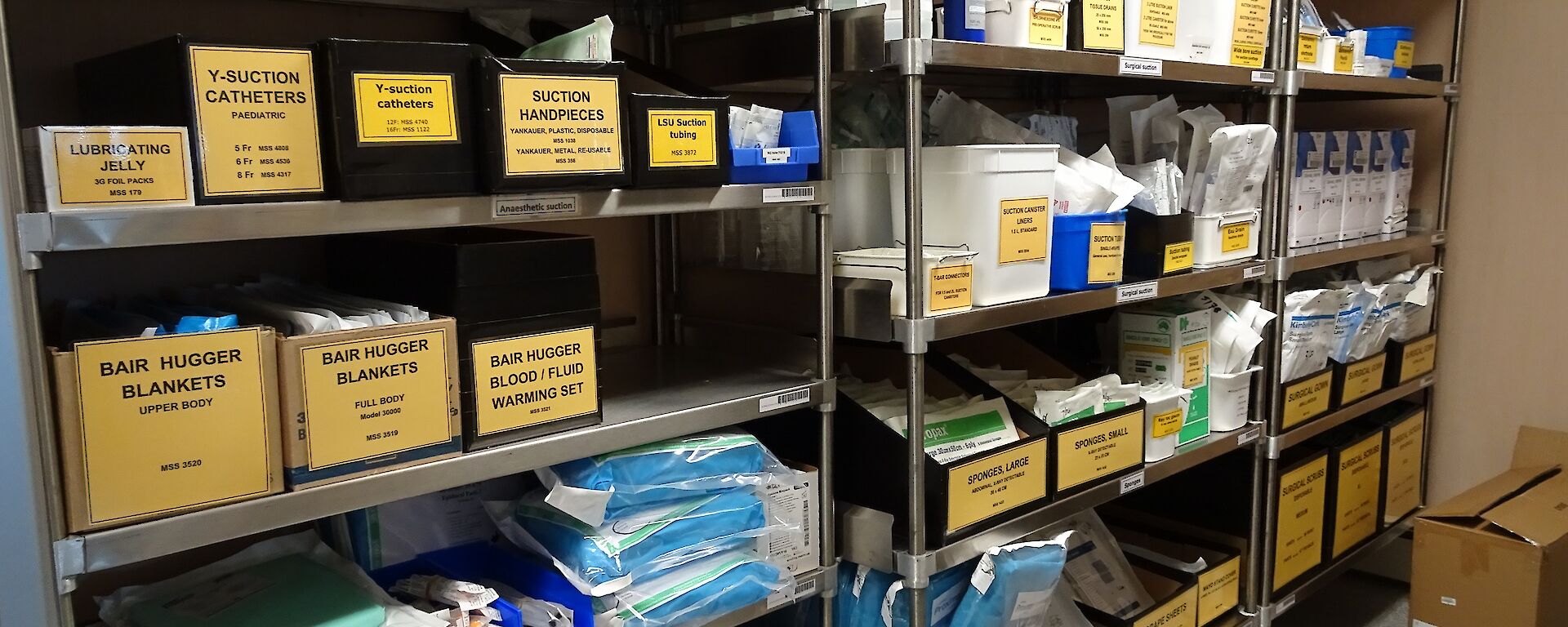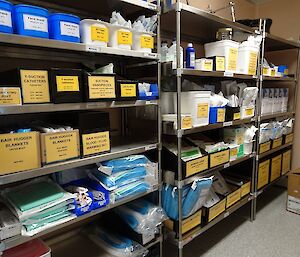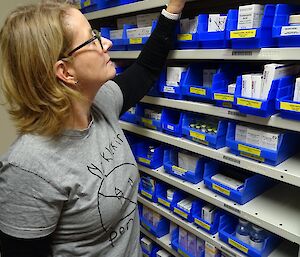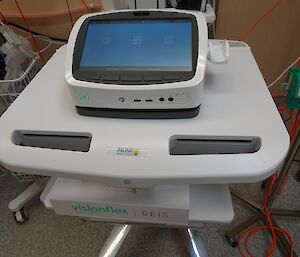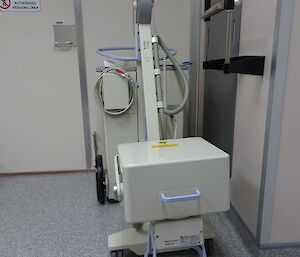Life for the sole doctor at Mawson is hopefully a quiet one. When the doctor is busy it means that something is not going well. My work at Mawson is very different from my very busy practice back in Australia where I look after patients from a few days old to the very elderly.
Here at Mawson we have no children and no elderly folk, plus the sorts of medical problems I see are very different too. In Australia I see lots of chronic disease such as high blood pressure, diabetes, heart disease and asthma where people may take medications to stay healthy.
The expeditioners who travel to Antarctica have been screened for these conditions and are very healthy. Once the last ship leaves at the end of summer there are no new germs introduced into our community so we don’t suffer coughs and colds until new people arrive at the end of winter.
If any of the expeditioners do get sick or hurt themselves then I do look after them, plus they all have a monthly check up to make sure they stay in tip-top shape. Most of my time is devoted to looking after the very comprehensive medical facility that we have. I make sure all the equipment is working properly so that we can deal with any medical problems that occur.
If necessary I can perform x–rays and ultrasounds, do blood tests and bacterial cultures, look after injuries and fractures and do any dentistry required. Hopefully I am also someone to talk to about any worries or issues that may arise from living and working so far away from family and friends for such a long time. I also test our drinking water every month to ensure it is safe to drink and check the efficiency of our waste water treatment.
If I do need assistance to look after any ill or injured expeditioners, I can call upon my four Lay Surgical Assistants (LSAs). These expeditioners have spent two weeks training in operating theatres at the Royal Hobart Hospital prior to heading to Mawson. Two of the team (this year our Senior Mechanical Supervisor and Carpenter) are responsible for monitoring the patient under anaesthesia and administering any treatment while the doctor is scrubbed and operating. Our other two LSAs (our Building Services Supervisor and Plumber) are the scrub and scout nurses, who are responsible for the surgical instruments and directly assisting in the procedure.
This year, the main focus in the medical facility will be continuing the implementation of the new inventory control program and expanding the world-class Polar Medicine Unit telehealth capability.
As well as doing my doctor work, I am part of the expedition team and have regular duties cleaning and as ‘Slushy’ (daily kitchen assistant). I also train the other expeditioners in advanced first aid and take part in the search and rescue training that everyone does. Even though I work alone without any other doctors or nurses, I have lots of support from the Polar Medicine Unit at head office and I can chat to the other Antarctic doctors at the other stations if I need to talk ‘shop’.
Dr Jan (Expedition Medical Officer)

